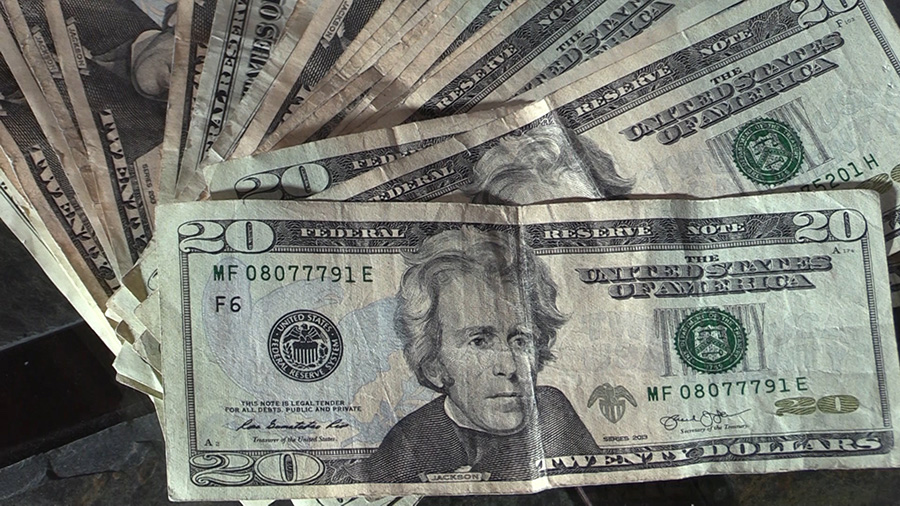Gov. Cox announces budget for 2023 with focuses on education, infrastructure and water conservation
Dec 7, 2021, 11:42 AM | Updated: 10:19 pm
SALT LAKE CITY — Gov. Spencer Cox and Lt. Gov. Deidre Henderson revealed their budget priorities for 2023. Their proposal focused on infrastructure, education, water, affordable housing and $160 million in a grocery tax credit.
Cox spoke from Antelope Island State Park, famous for its wildlife and shoreline of the Great Salt Lake. The governor spoke from this location to bring attention to the shrinking lake and environmental impacts of the ongoing drought.
Cox proposed a $520 million investment focused on water infrastructure, conservation and quality. Specifically, the budget proposed an additional $45 million to preserve the lake on top of the $5 million the legislature already committed earlier this year. The plan also proposed $600,000 to update the Great Salt Lake’s management plan.
“Grounded in our One Utah Roadmap, this is a budget that reflects our conservative values by investing in our people, expanding education opportunities and supporting families,” Cox said. “This is a budget that improves state government and builds infrastructure that will last for decades. This is a budget that works for Utah today and tomorrow.”
This budget also spotlights an issue that affects all of us: water.
The Great Salt Lake is one of the most important ecosystems in Utah, so we’re proposing another $45 million, on top of the $5 million already invested by the Legislature, to preserve it.https://t.co/Euv32A75I1 pic.twitter.com/pngnbwkDsq
— Utah Gov. Spencer J. Cox (@GovCox) December 7, 2021
An analysis from the Governor’s Office of Planning and Budget found a grocery tax credit would give more money to lower and middle-income households than cutting a food tax. According to the analysis, cutting the food tax would result in a $185 benefit for a two-parent household with six children, while the proposed grocery tax credit would give a $400 benefit. While cutting a food tax rate would give a typical family an extra $85, the proposed grocery tax credit would provide them with a $240 benefit.
“We are very concerned about inflation, and specifically concerned about the way inflation impacts middle and lower-income folks in state of Utah, especially families,” Cox said. “This proposal will benefit families. The bigger the family, the more the benefit.”
“You have to applaud the governor for realizing that rising food prices are a problem and trying to do something about it,” said Bill Tibbitts, the deputy executive director of the Crossroads Urban Center.
Tibbitts said that while the governor’s grocery tax credit proposal is substantial, he still prefers eliminating the sales tax on food altogether because it provides immediate relief at the cash register.
“When you have credits, they don’t always get to the people who need them and particularly some of the people who need them the most: low income families who don’t file taxes because they don’t have to pay taxes,” Tibbitts said.
Rep. Rosemary Lesser, D-Ogden, is planning to introduce a bill in the next legislative session to get rid of the state portion of the sales tax on grocery food. However, she told KSL-TV that she also likes the governor’s tax credit idea because it gives more money back to families.
“I am thrilled with this proposal,” Lesser said. “I think we’re starting from a really great point.”
Lesser said eliminating the sales tax would more quickly benefit those living paycheck to paycheck and hopes lawmakers can come to a compromise.
“I think that it could be even a combination of eliminating it at the cash register as well as a supplemental tax credit for middle and lower-income individuals,” Lesser said.
The governor’s 176-page budget recommendation said that unlike a repeal of the tax, the credit would only provide relief to Utahns, rather than those visiting the state who purchase groceries.
Every dollar we invest in our kids pays off with tangible benefits for individuals and Utah as a whole.
We’re proposing a historic $976 million investment in education, with $556 million going to K-12 schools and $420 million going to higher education: https://t.co/Euv32A75I1
— Utah Gov. Spencer J. Cox (@GovCox) December 7, 2021
The proposed budget commits $100 million for affordable housing development and an additional $128 million for housing efforts for those experiencing homelessness.
Due to a thriving economy and federal stimulus funds, $1.16 billion will go to the state general fund and education fund budget.
Education was the biggest investment of the budget, with Cox proposing $976 million, $556 million going to K-12 schools and $420 million committed to higher education. These funds were proposed to eliminate K-12 fees, improve opportunities and outcomes for at-risk students, provide mental health resources on college campuses and provide better skills and job opportunities.
Learning about @GovCox budget and there is a proposed historic investment in education. This graphic breaks it down — https://t.co/KrgGTJhz2z#ksltv #utpol pic.twitter.com/HZYQ2Qs5N7
— Morgan Wolfe (@MorganWolfeKSL) December 7, 2021













